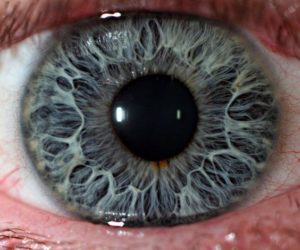 “Such are the eyes, such is the body” remains Hippocrates’ best-known saying. Today, iridology is a widely used technique for health assessment and prevention. Naturopaths frequently apply it. From antiquity to the 21st century, numerous studies have been carried out on the iridal projections of organs. This research has led to the creation of a variety of maps. They have enriched our understanding of the links between the iris and overall health. Iridology thus demonstrates its importance in the naturopathic approach.
“Such are the eyes, such is the body” remains Hippocrates’ best-known saying. Today, iridology is a widely used technique for health assessment and prevention. Naturopaths frequently apply it. From antiquity to the 21st century, numerous studies have been carried out on the iridal projections of organs. This research has led to the creation of a variety of maps. They have enriched our understanding of the links between the iris and overall health. Iridology thus demonstrates its importance in the naturopathic approach.
ASSESSMENT OR SCREENING USING FIELD IRIDOLOGY
This is an assessment of our entire organism, based on the interpretation of visible signs in the iris, using a traditional, non-medical method. Highlighting these signs provides non-scientific, but valuable and meaningful indications. The role of field iridology is to carry out an in-depth analysis of the individual’s personal terrain, to gauge his or her health capital, to assess vitality, to identify deficiencies and imbalances, to provide information on the cause of disorders, and to shed light on genetic or hereditary predispositions.
This report makes it possible to determine:
- Fundamental genotypic heredity (hereditary heritage).
- Secondary heredity and the morbid dispositions that have been grafted onto this constitution.
- The quality of tissues throughout the body.
- The vitality of these tissues.
- Global and local nerve and mineral reserves.
- The state and functioning of each of the body’s systems.
- The body’s acid/base balance.
- The hormonal system’s capacity to respond to aggression.
- The amount of tissue overload and clogging by metabolic waste.
- The situation of primary and secondary infectious outbreaks, even the smallest ones.
- The underlying causes of character and behavioral disturbances.
- The degree of general or local aging of the organism.
Without focusing solely on apparent symptoms, this assessment aims to identify and reveal root causes. By eliminating these causes, the body can regain its natural balance, leading to a true state of health. Field iridology emphasizes that perfection is unattainable, but shows us the importance of managing our own constitution. It’s a question of maintaining this balance to prevent it from tipping over into disease.
How does it work?
Some 500,000 nerve filaments and veins link the iris to the rest of the body. These signs appear long before you feel the first symptoms, and remain marked long after you’ve recovered. So it’s the iridologist’s experience that will help him or her distinguish between past, present and future dysfunction.
The benefits are both :
- Preventive: finding out what your terrain is enables you to become aware of the way your body functions: your strengths, your weaknesses and therefore your pathological predispositions. Thanks to the iridologist’s detailed explanations, you’ll know which organs you need to support, and more importantly, how.
- Curative: the iridologist will explain the WHY of your symptoms, so you’ll have the knowledge you need for the future.
An iridology session helps you realize that you can take charge of your physical, nervous and emotional well-being.
How a session works:
During an iridology session in Geneva, I use an iridoscope (a luminous, digital magnifying glass, connected to a computer, which allows photos to be taken), which is a precision piece of equipment. We take a photo of both eyes.
With iridal mapping, I explain these observations in detail when the result allows.
(Below is a photo of a partial mapping).

Your iridologist in Geneva will take the results further by looking for other causes of your organic imbalances in your lifestyle, and will seek to provide personalized advice (diet, sleep management, stress management, etc.).
Please note: iridology cannot be used to make a medical diagnosis, nor can it replace a conventional health check-up. Nor is it an ophthalmological examination. On the other hand, iridology screening can shed light on certain organic imbalances (e.g., a sluggish liver), without, however, precisely identifying a pathology (such as hepatitis or cirrhosis). For a definitive diagnosis and medical treatment, you need to consult a doctor.
